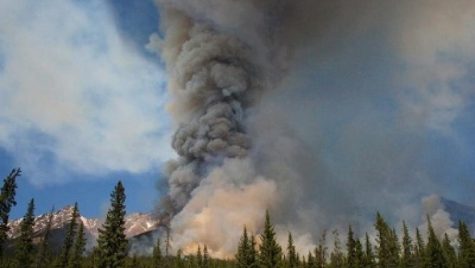Climate Change Hits Close to Home
September 14, 2022
What is Climate Change?
A change in global weather patterns consisting of extreme lows and highs in temperature, due to the lack of environmental safety from worldwide communities. This change has become increasingly noticeable in the mid to late 20th century and attributed largely to the increased levels of atmospheric carbon dioxide produced by the use of fossil fuels.
Effects On The Community
Despite common belief that climate change has no visible effects on the population of Tacoma, the cancellation of the football game on Saturday tells a different story. On September 10th, a message went out that “due to air quality” caused by the spreading wildfires the football game was cancelled. The NIFC (National Interagency Fire Center) shares that roughly 8.4 million acres (about the area of Belgium) of land have burned across the U.S this year alone and our neighboring states Montana, Nevada, California, Idaho, and Oregon make up a significant percentage of this. Although wildfires have always been present in the Northwest, The NIFC shows the public that it has been more devastating and widespread in more recent years. As the current generations learn about climate change, students are only presented with the melting ice caps, polluted oceans and heavily polluted countries such as China. But rarely do we see its effects hit close to home. As climate change continues to alter our nation’s weather, causing unbalanced seasons-such as longer summers-there are negative changes beginning to impact even our smallest of towns. Something as little as a school football game can grow into the cancellation of increasingly popular activities such as community celebrations and even world cup sports games. Unsurprisingly, climate change is slowly beginning to create more challenges in our modern-day world, so it is our job as a community and a worldwide population to make a change before it’s too late.